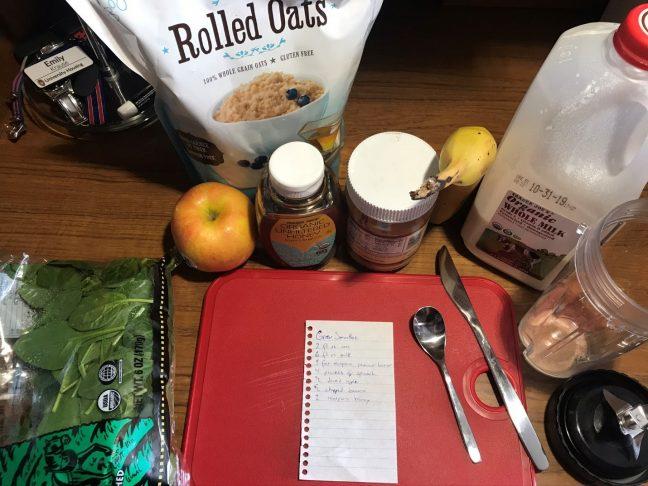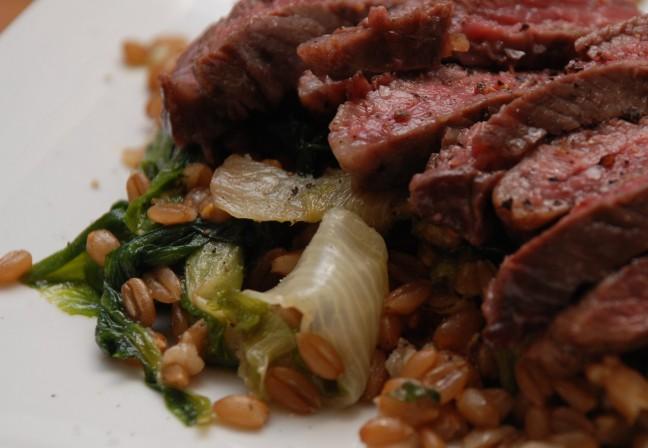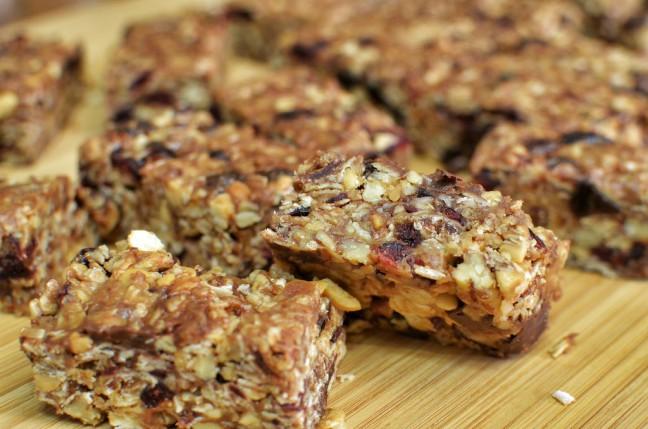Mornings during a college semester can often seem like a 100-meter dash. We rush to get dressed, pack our books, study last-minute for that big exam and zoom out the door to class.
It is not surprising, then, that many of us skip the first meal of the day.
So what is the big deal? Is breakfast really the most important meal? Many studies show eating breakfast can play a part in maintaining a healthy body weight.
The word “breakfast” literally means “to break the fast.” Breakfast provides your body and brain the nourishment it craves after an overnight fast. Having a meal in the morning helps you feel satisfied longer and helps deter snacking later in the day.
Eating is essential to kick-starting your metabolism for the day. While you are sleeping and fasting, your body slows down many processes and burns less calories. Eating breakfast helps send the signal that it is time to bring these systems back up to speed so you burn more calories throughout the day.
The National Weight Control Registry, which follows people who have lost at least 30 pounds and kept it off for at least one year, cites that 80 percent of participants regularly eat breakfast. However, the correlation only exists for a healthy, balanced breakfast low in fat and high in protein and/or whole grains.
Having a meal in the morning also is necessary to get your brain functioning at its optimal level. Your brain needs glucose to function, and after a night of not eating, your body’s stores have been depleted. After a night of not eating, there is a decline in blood glucose and insulin concentrations. Breakfast helps raise your blood glucose levels back to normal to give plenty of fuel for your brain to perform its best on those tests or pay attention in lecture.
Even if you don’t have morning classes, people who eat breakfast report having more energy throughout the day. According to the Mayo Clinic, skipping breakfast is associated with a reduced physical activity level throughout the day. So if you want to prevent that midday slump or play your best at that intramural sports game, make sure to fuel up in the morning.
The benefits of breakfast don’t just stop at weight maintenance, concentration and increased energy. Breakfast can also help foster an overall healthy diet and better nutritional status. John Hopkins University explains that people who do not eat breakfast most often do not make up the vitamins and minerals on which they missed out. When many of us skip a healthy meal in the morning, we pick snacks high in sugar and fat to curb our hunger later in the day. Thus, eating a healthy breakfast regularly contributes to a nutritionally adequate diet that is high in nutrients and low in empty calories.
So, there you have it. There are many positive outcomes to eating a healthy breakfast every morning. Now, one may wonder – what does a healthy, balanced breakfast consist of?
The Academy of Nutrition and Dietetics (AND, formerly known as the American Dietetics Association or the ADA) recommends filling your breakfast plate with lean protein, whole grains, fruits and vegetables.
Studies have shown that participants who ate lean protein in the morning felt fuller and consumed less calories throughout the day than those who did not.
Sources of lean protein include one to two slices of Canadian bacon, eggs and egg whites, low-fat yogurt and peanut butter. Note that studies show the cholesterol in eggs does not contribute to higher blood cholesterol levels, and they can contribute to a healthy diet.
Low-fat yogurt is a great source of protein and also can be a significant source of calcium in the diet. It also goes well with fruit, which is another recommended breakfast food. Fruit is a nutrient-dense option that can add natural sweetness to your breakfast.
Whole grains are rich in vitamins, minerals and dietary fiber. Foods with a high fiber content are digested at a slower rate and can help you feel fuller for longer.
Good sources of whole grains are whole grain bread products, whole grain cereals, oatmeal and even whole-wheat pancakes or waffles. Make sure to look for “whole-wheat” or “whole-grain” in the label. Products labeled “multi-grain” may or may not contain whole grains.
Lastly, vegetables can easily be added to omelets or other egg dishes to boost the nutrient content and flavor, of your morning meal.
To learn more about healthy breakfast ideas, I recommend checking out AND’s website eatright.org.
This week’s recipe is perfect for an on-the-go breakfast. Pair with a glass of low-fat milk or a carton of low-fat yogurt, and feel free to incorporate a lean protein source as well.
Blueberry Oatmeal Muffin
Ingredients:
1 2/3 cups quick-cooking oats
2/3 cups all-purpose flour
1/2 cup whole-wheat flour
3/4 cup packed light brown sugar
2 teaspoons ground cinnamon
1 teaspoon baking powder
1 teaspoon baking soda
3/4 teaspoon salt
1 1/2 cups low-fat buttermilk
1/4 cup canola oil
2 teaspoons grated lemon rind
2 large eggs
2 cups frozen blueberries
2 tablespoons all-purpose flour
Cooking spray
2 tablespoons granulated sugar
Preparation:
Preheat oven to 400 degrees.
Place oats in a food processor; pulse five to six times or until oats resemble coarse meal. Place in a large bowl.
Weigh or lightly spoon flours into dry measuring cups; level with a knife. Add flours and next five ingredients (through salt) to oats; stir well. Make a well in center of mixture.
Combine buttermilk and next three ingredients (through eggs). Add to flour mixture; stir just until moist.
Toss berries with two tablespoons flour, and gently fold into batter. Spoon batter into 16 muffin cups coated with cooking spray; sprinkle two tablespoons granulated sugar evenly over batter. Bake at 400? for 20 minutes or until muffins spring back when touched lightly in center. Remove from pans immediately; place on a wire rack. Let them cool and enjoy!



















